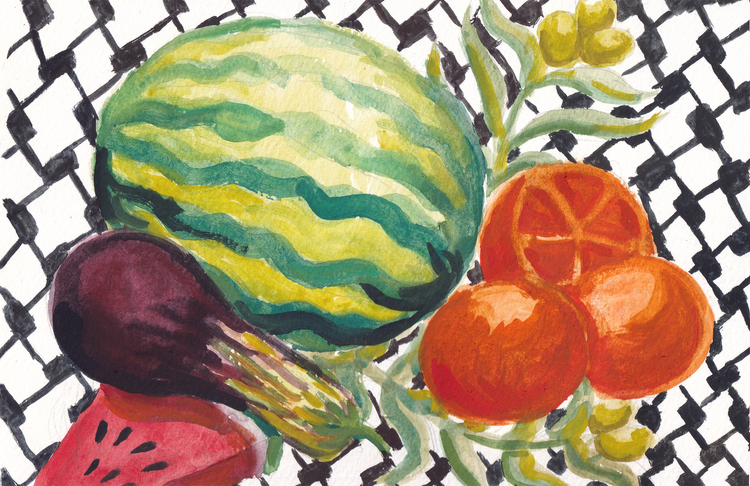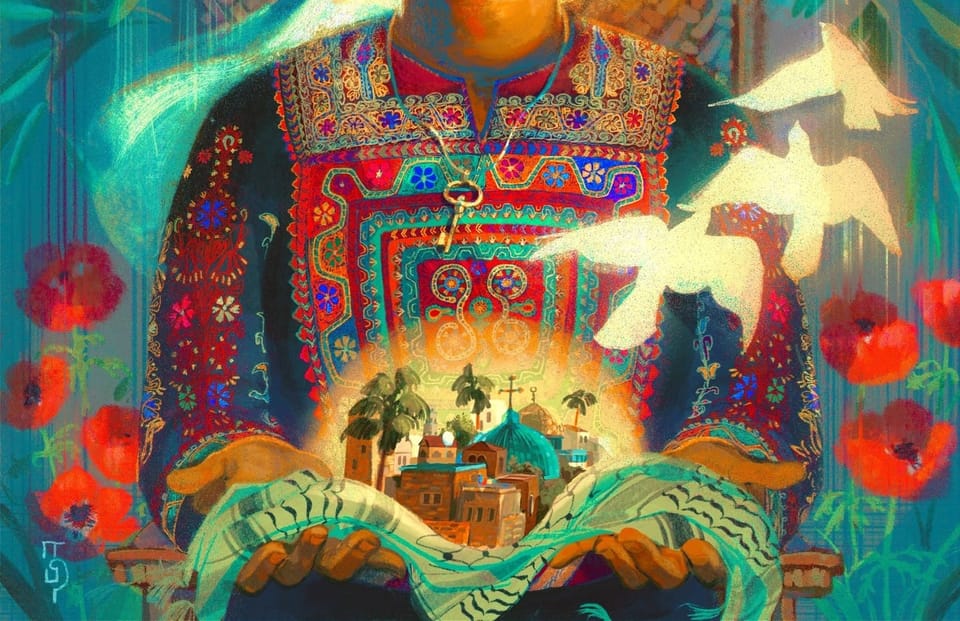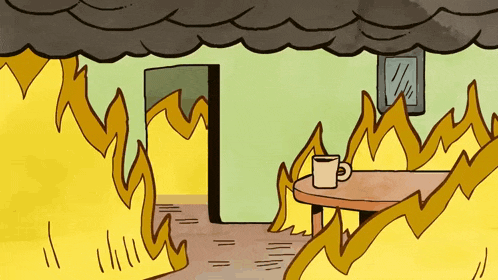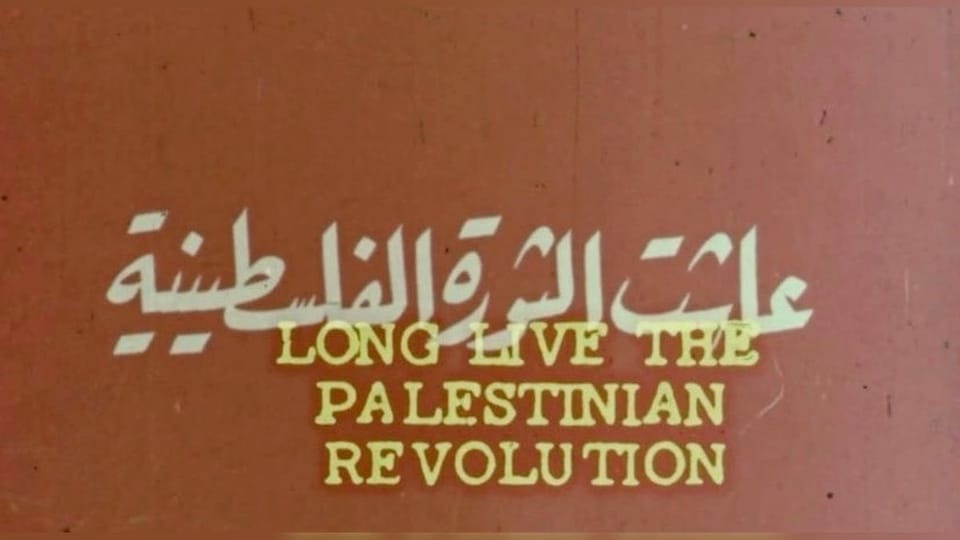Rethinking a social emphasis on procreation and proliferation
When confronted with this growth-oriented worldview, the burden is often placed on sexually diverse Muslims to change ourselves to conform to it.

You may have heard before that sexually diverse Muslims are deviants because our relationships allegedly disrupt reproduction. A Singaporean I spoke to for this project said:
Muslims who aren't inclusive believe that homosexuality is not natural for humans. Their understanding of ‘natural’ is that you procreate to reproduce the species. Some conservative Muslims are very similar to the Stoic thinkers, and believe that sex is only for procreative purposes. But we need to explore other ways: adoption, helping single parents, or LGBT people who want to raise children.
I was excited to discover that in the same year I wrote The Signs In Ourselves, GAYa NUSANTARA Indonesia released a booklet made by and for queers of faith called Christian-Islam Progressive Interpretations of Gender Diversity and Sexuality. The booklet was the result of discussions between Indonesian Muslim and Christian study leaders, gender academics, and activists. By popular demand, it was translated into English from Bahasa Indonesia.
The booklet lists 9 common issues used to justify a doctrine of hatred towards the LGBTQI community. One of the core messages of the booklet was a call to reevaluate a long-held emphasis in Muslims on the importance of procreation and proliferation. Here is my attempt to summarise some of their points around it—

1. Framing the complex Muslim mission of building an ummah as just a numbers game has implications on the way Muslims themselves are viewed.
"The number of people becomes a determining factor signifying the strength and power of a big religion. Ensuring offspring aggregation is pivotal to achieve this quantity-based power."
2. The immense emphasis on proliferation made fertility an ‘indispensable quality.’
Following this logic, the biggest strongest ummah is one where everyone contributes to the cause of procreation.
3. What is the effect of this perspective?
Sexual diversity is seen as a threat to the goals of procreation. "Effeminate or less masculine men are considered detrimental because they are presumed not to marry or reproduce." People who can give birth are seen merely as incubators for future Muslims, and infertile people are considered lesser human beings. In many civilisations all over the world, the ability to reproduce is considered the most important factor for marriage.
"The proliferation-oriented view of a religion gave birth to the heterosexual cisgender masculine patriarchal reproductive regime that until today has continued to be accepted and praised. This reality has become one of the reasons why Islam is homophobic, transphobic, and anti-LGBTI."
4. The reality is Allah has confirmed infertile or non-procreating people are manifestations of Their creative will (42:50).
There is no command to exclude or discriminate against 'aqim, the barren in the verse. "The mention of 'aqim in 42:50 is not only understood as infertility, but also refers to the choice not to have children." Neither the Qur'an nor Muhammad ﷺ imply that procreation is the only purpose of sex.
5. Therefore, both people in marriage have the rights to come to their own ways of living and be respected for it by others, including the decision to be consensually childless.
"All agreements must also be based on the principle of mafhum mubadalah, built on mutual understanding, reciprocity, through the path of mu'asyaroh bil ma'ruf or a relationship that is full of tolerance and justice."
The booklet also extends this call for appreciation and respect to include those who choose not to get married, or to have children in ways that differ from the norm, including assisted reproduction.
6. "Various provisions of religious law for these cases must not be considered in a vacuum, but instead on the reflection of contextual social reality according to the present time and up-to-date science."
"If the development of science has been able to provide an opportunity for someone to reproduce or not to reproduce according to their abilities and desires, then religion must be able to accommodate this development as an embodiment of the fulfilment of people's physical and spiritual happiness or sa'adatuddarain."
Read the full English translation of Christian-Islam Progressive Interpretations Of Gender Diversity and Sexuality.


How can we rethink this social emphasis on proliferation?
When confronted with this growth-oriented worldview, the burden is often placed on sexually diverse Muslims to change ourselves to conform to it. Yet we know: Not all the free will on earth can overpower Allah's design for who we are. And more of something doesn’t automatically make it good. So instead, what if everyone was inspired by the reality of sexually diverse Muslims to reflect on whether a ‘reproductive regime’ really fulfils our Divine collective purpose as an ummah?
Muhammadﷺ envisioned a world where orphans were adopted and loved by responsible adults.
When reflecting on this in our time, one can imagine layers of benefits for adjusting our collective norms—
- What if heterosexual marriage wasn't one's only option for a stable life?
- What if every child born was a child that was deeply wanted and prepared for by parents and policy makers?
- What if orphans were adopted and safe even if they were 'already' teenagers?
- What if older generations were guaranteed care without the pressure to raise their own caretakers? Solo elderly adults would no longer be one of our most vulnerable members of society, regardless of their gender identity or sexual orientation.
- Can we reimagine more varied ideas of family beyond the romantic heterosexual pair? This could include state recognition of platonic long-term female friendships, for example.
- How else can our social acceptance as 'natural' Muslims be measured instead of our marital or parental status?
The Qur'an also calls us to do a lot more together than have children in service of a proliferation-based worldview.
Since we believe its words to be timeless, how can we bring those other priorities into focus today to not just broaden the straight path, but include as many of us on it?

This post is adapted from The Signs In Ourselves (pp. 86-88), a queer spiritual wellbeing workbook inspired by Qur'an verses 41:53, 51:20-21, and interviews with Southeast Asian Muslims. Written by Liy Yusof and illustrated by Dhiyanah Hassan, it was made available online in 2020 by the Coalition for Sexual & Bodily Rights in Muslim Societies. May Allahﷻ accept this offering and bring it to those who need it. Letters and inquiries: qmcourage [at] gmail [dot] com.



